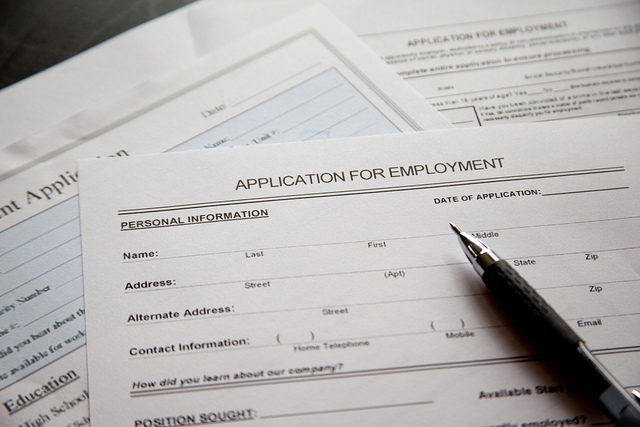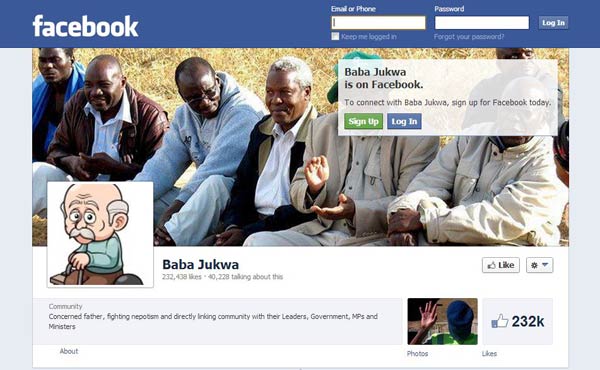Dear post-election Zanu-PF (aka Government of Zimbabwe)
RE: APPLICATION FOR ONE OF 2.2 MILLION JOBS
With reference to your election manifesto, which excited even the MDC-T to splitting point and made me put a cross next to your name on the ballot paper, I hereby apply, publicly, for any one of the 2.2 million jobs you promised in Zim Asset. In case you have forgotten, this is that economic blueprint you came up with in October 2013, which is meant to “to provide an enabling environment for sustainable economic empowerment and social transformation to the people of Zimbabwe”.
July 31 marked exactly one year since I cast my first official ballot in the country’s elections, ending previous attempts at maintaining my political virginity. Now, there is some background I should give you. I do not bet or play the lotto because everything I put my bet on seems to lose. Even when I want my football team to win, I don’t watch the match. That is why I have not been voting all these years. I hated to see what I love losing. But last year, for the first time, I took the risk – and the jinx was broken! You won the election. However, looking back on my country, I’m concerned about whether the jinx was really broken. Could it be that in you winning massively, Zimbabwe actually lost quite a lot?
Forgive my rambling. With so many of my job applications gone unanswered, I do not know if it was my cover letter that failed me, or the comma that was missing from my CV, or if it’s just that none of the 2.2 million jobs you promised are on the market yet. But the issue at stake here is that I am looking for a job, and urgently so, because I am 31 and unmarried and cannot afford to be unemployed. One may ask why I am applying to you. Most of the companies I approached are either already closing down or downsizing staff, and employing me is an unrealistic dream for them. But I know you have 2.2 million jobs that you promised me in 2013, and I have come to claim at least one.
I am one of those “resources that gives Zimbabwe a comparative advantage over regional and other international countries is its economic complexity that includes the strong human resource base, which is an outcome of a deliberate educational policy instituted by the ZANU-PF Government at Independence in 1980.” Unfortunately, I have been trying to make myself a useful resource with little success, hence I’m approaching you so that you can employ me.
I hold a qualification in tourism and hospitality, among other numerous qualifications, and should be glad that tourism is one of your key target economic areas with huge potential. It’s just that I have not seen what you referred to in Zim Asset as “Quick Wins” or “rapid results yielded “in the shortest possible time frame (October 2013 – December 2015)”. Obviously I blame this on the fact that no initiatives have been implemented or “blitz interventions” made since I voted for you. Damn the sanctions, of course. Oh, I had forgotten that there are also sanctions-busting strategies. So damn the inaction. What have you been doing this whole past year?
Secondly, survival has taught me all these other vital skills and given me a great deal of experience, which will account for any gap periods in my CV. Like most others, I am now a serial entrepreneur, sometimes vendor, marketer, social media enthusiast, administrator, occasional job-hunter and writer. So, do not get me into the unemployed-experience-unemployed conundrum. I don’t deserve it, neither do millions other Zimbabweans who have faced desperate situations, including this economy, and lived through it.
And if there are any other things that you deem important which I do not have, such as a driver’s licence and a passport, please remember that I might not have been able to afford the $200+ required to bribe driving inspectors, or had the time to wait in unending queues at the Registrar General’s offices.
And lastly, if it turns out that all the other vacancies have already been filled by the numerous educated but unemployed youths roaming the streets – most of whom are thinking of leaving the country – I would like to become one of the officials in the Office of the President and Cabinet who will “play a leading and co-ordinating role as overseer of the implementation process to ensure attainment of set targets of the Plan.”
At least I know that vacancies still exist in this section of Zim Asset because, with nothing happening, my only guess is that no one is co-ordinating the implementation process of this brilliant document. My claim to employment in this section is backed by my qualification in monitoring and evaluation, and validated testimonies that I am discreet, patriotic and intelligent enough to meet your requirements.
Please note:
- Do not take this a joke; I really need a job and so do millions others. And the earlier you make those “blitz interventions” for “Quick Wins”, the better it is for all of us. December 2015 is not far away.
- At this point don’t refer me to non-working youth funds. I have tried those before. All I need is a job. A piece of land would be a welcome alternative though.
- Please ensure that I get a job in haste before South Africa and its post-election ANC deport the more than 3 million jobless Zimbabweans there back home.
- I can attend interviews as fast as the kombi you want to banish without an alternative can take me to the venue.
Regards (because we are compatriots and I deserve better from you),
Lawrence Hoba
Lawrence Hoba is an entrepreneur, author and passive politician. His short stories and poetry have appeared in The Gonjon Pin and Other Stories, Writing Lives, Laughing Now, Warwick Review and Writing Now. His anthology, The Trek and Other Stories (2009), was nominated for the NAMA in 2010 and went on to win the ZBPA award for Best Literature in English. It tackles the highs and lows of Zimbabwe’s land reform. Connect with him on Twitter: @lawhoba




